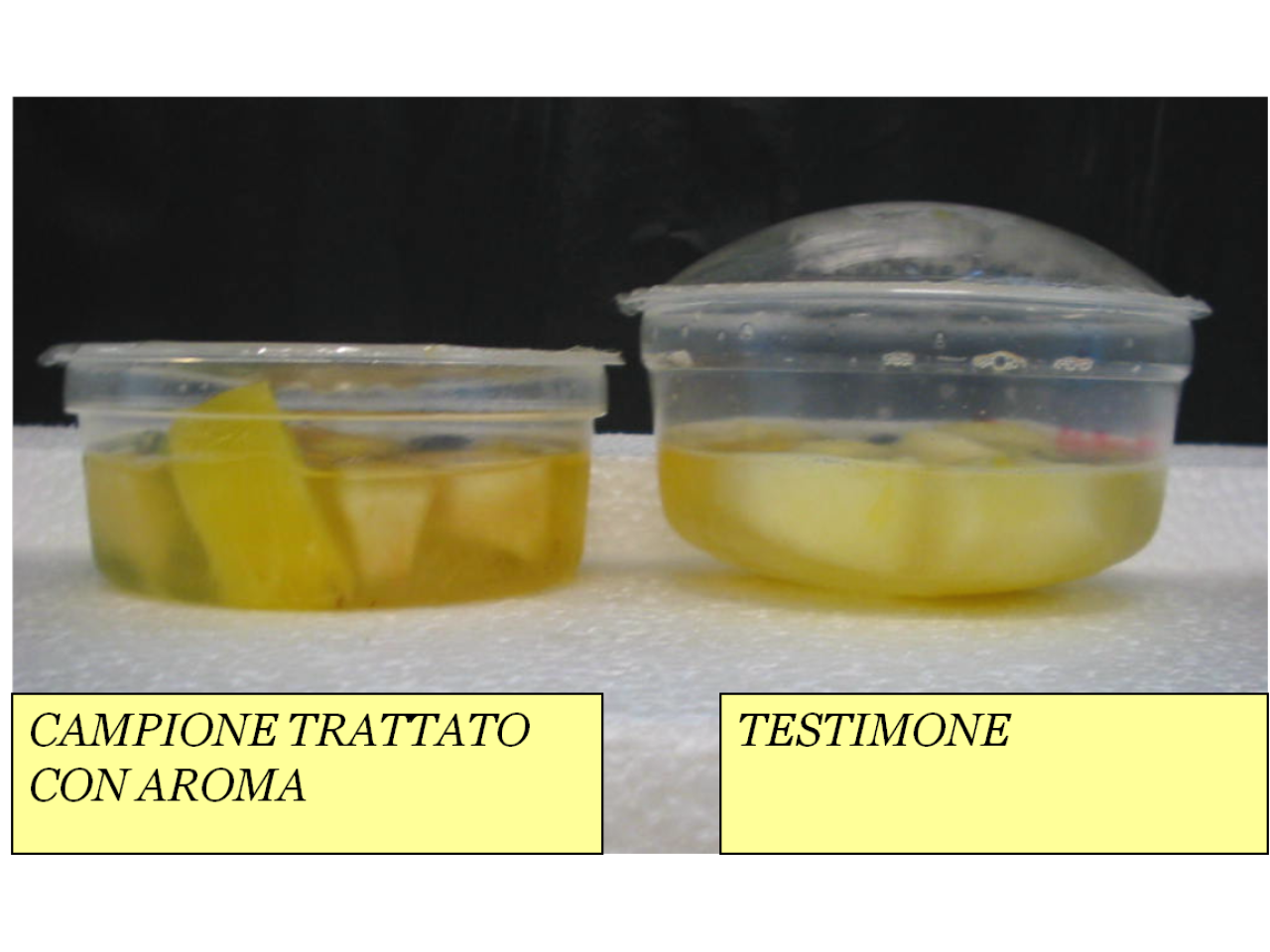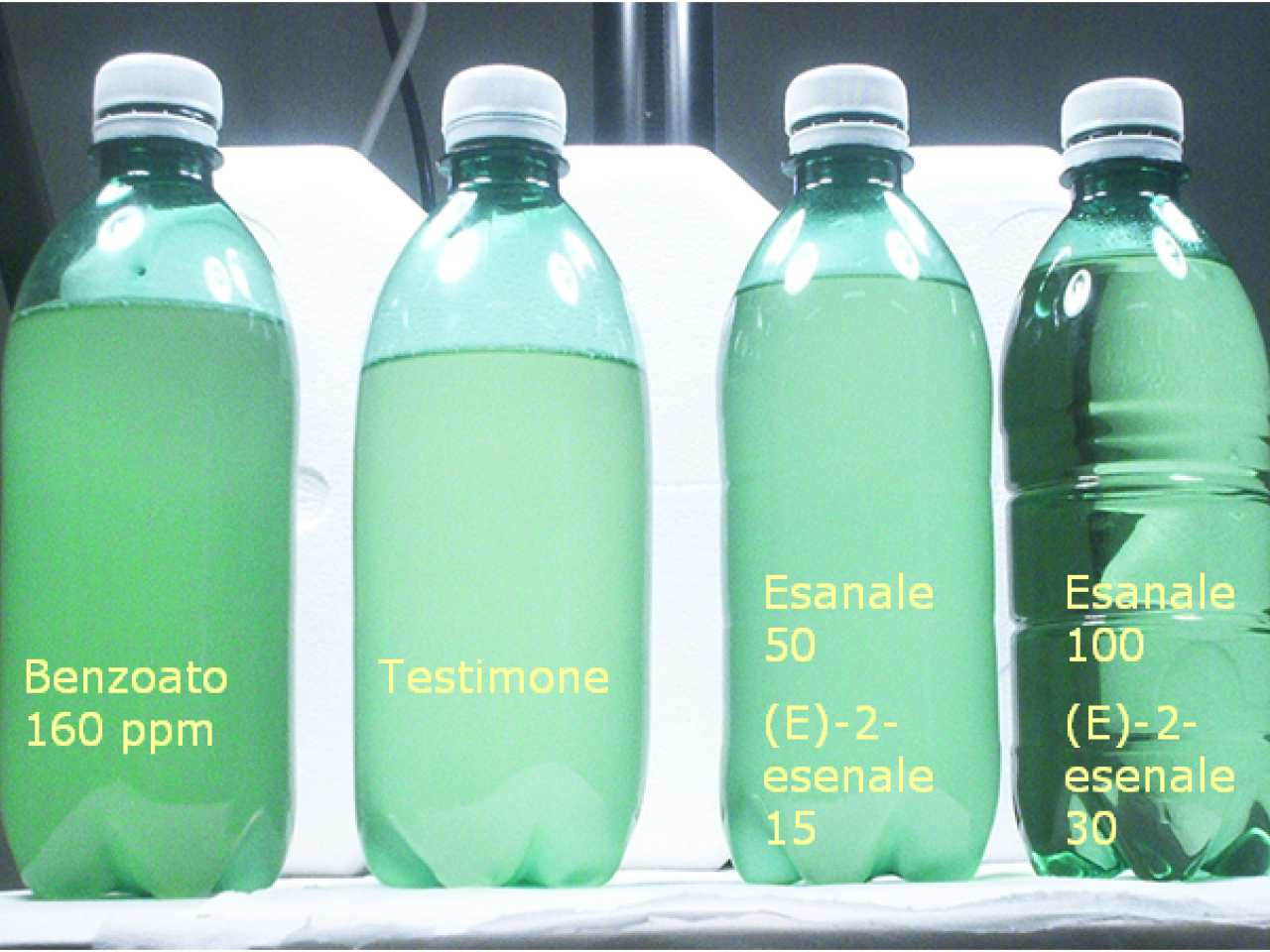Service implemented for companies that seek to pursue "natural" microbiological foodstuff stabilisation strategies. It provides a competitive market advantage since it addresses consumers' increasing demand for minimally treated products with no preservatives, perceived as not natural. The service consists in the assessment of the characteristics of the foodstuff in question and in the selection of the most effective natural flavourings compounds relating to their organoleptic impact and chemical-physical and process factors that characterise the foodstuff.
 Comparison between two fruit salads either added with essential oils or not
Comparison between two fruit salads either added with essential oils or not
The innovative aspects of the product offered consist in replacing or reducing traditional preservatives or thermal treatments thanks to the use of bio-active molecules classified as "natural flavourings". The adoption of strategies based on these principles, on one hand allows the company to meet consumers' demands for products without synthesised preservatives and with high nutritional value, on the other allow thermal treatments to be reduced, with obvious advantages from an energy point of view and in maintaining the product's "freshness" features.
The described solutions are especially applied to plant origin products. In fact, a number of potential applications already exist, targeting ready prepared products (either fruit, vegetables or salads) and soft drinks and fruit juices, which lend themselves well, thanks to their composition, to this kind of applications. These applications are extremely interesting also for animal-origin food products, such as meat and fish, both fresh and processed.
 Soft drinks, added or not with flavourings or conventional preservatives
Soft drinks, added or not with flavourings or conventional preservatives
Use of natural antimicrobials for stabilisation of soft drinks
Diverse concentrations of aroma molecules such as citral, linalool and β-pinene were added to citrus-based beverages. These products - owing to their features of composition and pH - are liable to alterations by fungi. Usually, in order to prevent degradation phenomena by these micro-organisms, one resorts to thermal treatments or the use of preservatives (weak acids). The use of these three substances, organoleptically compatible with the product, have led to stabilisation of the tested beverages with a much milder thermal treatment than those commonly used and without traditional preservatives. The use of these substances, the used amounts of which are perfectly compatible at organoleptic level with the product, have led to stabilisation of the tested beverages without traditional preservatives and with a much milder thermal treatment than those commonly used. The latter aspect, as well as obvious advantages from the economic point of view, has made it possible to reduce the "cooked flavour" typical of many pasteurised juices and drinks.
Companies in the soft drink sector
The experimentation has been conducted in collaboration with a large company in the soft drink and fruit juice sector. The results obtained have been used in the company and have given rise to a number of international and divulgative publications.
 Innovation at the service of companies
Innovation at the service of companies

